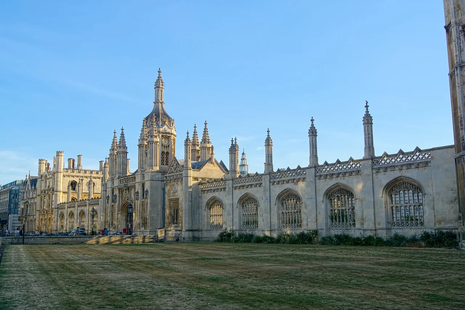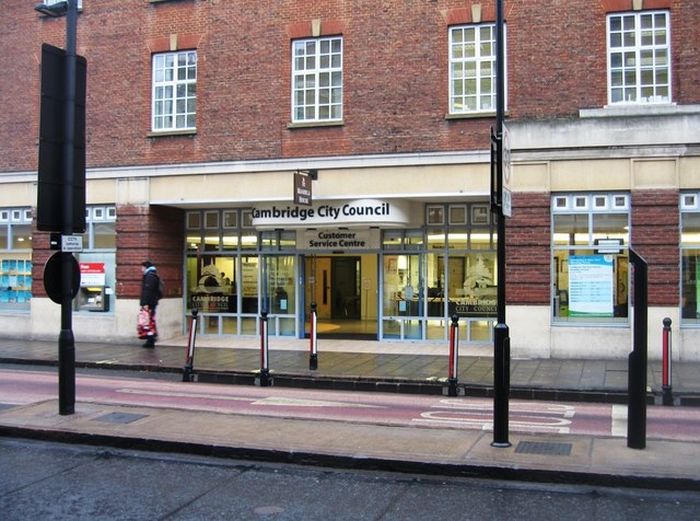University releases its Environmental Sustainability Report for 2019-20
This year’s report shows that, out of eleven targets, the University has achieved one, is making good progress on six and could improve on the remaining four

The University of Cambridge’s Annual Environmental Sustainability Report was released last month for the 2019-20 academic year. While good progress has been made for six out of eleven targets, four key sustainability goals have been missed. Only one target, to reduce total scope 1 and 2 carbon emissions to absolute zero by 2048, was achieved, with the University on track to meet this aim.
This annual report is produced as part of the University’s Environmental Sustainability Vision introduced in 2015. The proposed targets and solutions are set out in the 2015 Environmental Sustainability Vision, Policy and Strategy report, which was subjected to a full review last year.
While progress has been made on biodiversity and sustainable construction targets, comments on the targets for waste, sustainable procurement and travel and transport were mixed between “good progress” and “we can do better” according to the report’s scale of success. Goals for reducing water consumption were considered to have not been achieved, because, even though water consumption levels have decreased, this was mainly due to the lockdown rather than University measures.
Carbon and Energy
The University’s overall electricity use decreased by 30%. Administrative buildings saw the most significant drop of 60% due to reduced occupancy as a result of the pandemic. However, the opening of two new biomedical buildings (Anne McLaren and Jeffrey Cheah Biomedical Centre) with high energy consumption has partially offset the overall reduction in electricity consumption. .
Only 0.29% of the total electricity consumed was renewable. The University hopes to increase this figure to 19% with the development of a 22MW solar farm.
This year, Science-Based Targets (SBTs) were also developed for University’s academic estates. SBTs have been set for the North West Cambridge Development, Cambridge Assessment and Cambridge University Press. A separate tool has also been created for all Colleges to develop their own SBTs.
Divestment
Following the reporting period, the University announced that the £3.5 billion Cambridge University Endowment Fund (CUEF) would completely divest from fossil fuels by 2030 and seek to achieve an investment portfolio with net-zero greenhouse gas emission by 2038, more than ten years in advance of the national target set at 2050.
Following the divestment of CUEF, four Colleges (Christ’s, Clare Hall, Pembroke and Trinity) have publicly announced complete divestment while another 12 (Newnham, Robinson, St John’s, Fitzwilliam, Selwyn, Emmanuel, Downing, Peterhouse, Queens’, Lucy Cavendish, Jesus, and Trinity Hall) have committed to partial divestment.
The ‘Cambridge Colleges Divest Now’ campaign has recently been launched by students from non-divested Colleges to push for full divestment across Cambridge Colleges.
Travel and Transport
Per capita travel emissions were 27% lower compared to 2014-2015 levels, but this was largely a result of the pandemic. The report also states that 69% of staff travel to work via sustainable modes of transport, and the University's Transport Strategy introduced in 2019 seeks to increase this number through measures like installing new electrical vehicle charging stations.
Recycling and Waste
The amount of waste generated fell significantly due to the pandemic, with an 81% decrease from April to June 2020 compared to the same period in the previous year. Recycling rates increased to 73%.
Waste generated by the University is expected to increase with the resumption of normal operations. Measures to counteract this include the publication of a Waste Strategy that draws on best practices and serves as a guide in reducing waste. Additionally, the Cambridge Institute for Sustainability Leadership (CISL) has embarked on a partnership with beverage companies and stakeholders to come up with packaging designs that eliminate plastic waste.
Water
Similarly, water consumption decreased by 10%, but is predicted to increase in the long run after the pandemic. The University is looking at curating a Water Management Plan and designing new buildings to consume 40% less water with more efficient designs and technologies such as low flow taps and showers.
Sustainable Food
The University has also placed sustainability at the forefront of their food policy, winning the Sustainable Award at the 2020 Public Sector Catering Awards.
This year the University signed the ‘Cool Food Pledge’, a commitment to reducing food-related emissions and installed water fountains at all of their cafes to encourage reusable water bottles. They have also developed a partnership with the street food market at the West Cambridge Site which has resulted in all of the street food traders no longer selling ruminant meat. Since they were introduced in October 2016, policies of removing ruminant meat from menus and promoting plant-based options have had a positive impact on the University’s food-related carbon emissions.
Biodiversity
The University Council also approved the Biodiversity Action Plan (BAP) last year. The ten-year plan seeks to augment appreciation and protection of biodiversity within the University and the Greater Cambridge Area. Initiatives include the “Wilder Cambridge” project to increase University staff and student participation in biodiversity appreciation through activities like nature walks.
Sustainable Construction and Refurbishment
Environmental sustainability assessments have also been consistently carried out to ensure sustainable construction and refurbishment. For instance, the Crop Science Centre was awarded a BREEAM Excellent (an indicator assessing the sustainability of buildings). A new version of design guidelines was published last year for design proposals.
Proposed sustainable designs include the Harrison Drive Nursery near Homerton College, built with cross-laminated timber which has lower carbon emissions compared to steel frames typically used in other buildings.
Sustainable Procurement
The University also completed its Sustainable Procurement Review (SPR) in November 2019, which examines how goods and services can be procured in more sustainable and efficient ways. The University is striving towards obtaining the international standard in sustainable procurement (ISO20400), taking key steps like implementing the Sustainable Procurement and Purchasing Project (SPP).
Partnership and Engagement
The report also details how the University has involved staff and students in their environmental vision, launching a new three-year Communications and Engagement Strategy. This was the eighth year of Green Impact, the University’s environmental accreditation scheme which supports colleges and departments to reduce their environmental impacts. The highest total yet of sustainability actions as part of Green Impact was recorded this year. This includes actions such as the development of a courtyard garden for the Department of Land Economy and Churchill college’s “Let’s Ditch Plastics” event.
Engaging with students has also involved other programmes and events. The University’s Sustainability team has supported Cambridge Hub’s six week “Engage for Change” programmes, which provide a space for students to develop their own environmental projects, with this year’s examples including a Carbon Literacy training programme and a glove recycling scheme. The Carbon Challenge Competition similarly brought together teams of staff and students to develop ways of “Gamifying Decarbonisation”.
Teaching and Research
In November 2019, the University also launched its “ambitious” climate change initiative, Cambridge Zero. Since then, Cambridge Zero have founded the Cambridge Zero Policy Forum, introduced four paid summer internships, developed a world-first prototype Cambridge Climate Change Business Risk Index, developed teaching resources for University of Cambridge Primary Schools, and launched a local radio show and YouTube channel.
On a national level, Cambridge Zero co-founded the UK Universities COP26 Network to engage with the UK government in planning for the COP26 conference, and, at the international level, they have been working with the Global Alliance of Universities on Climate.
Ways to Get Involved
The report also encourages students to get involved with the University’s sustainability efforts by becoming one of the University’s Environment and Energy Coordinators, joining a Green Impact team or following their Greenlines newsletter and social media to stay up to date with what is happening across the University.
In light of the report’s findings, Joanna Chamberlain, Head of Sustainability at the University of Cambridge, commented: “I am hugely encouraged by the University’s commitment to sustainability and the key role the University can play in tackling global challenges (...) This year has seen some great progress in the face of unprecedented global events – I look forward to seeing what the next year brings.”
Covid-19 has had an impact on this year’s report - carbon emissions, waste and travel impacts have all dropped as a result of lockdown, but are likely to increase again next year. However, the pandemic has also led to new ways of working, with attendance at the events and projects organised this year remaining high, despite their move online.
Chamberlain adds that “for many of us Covid-19 has resulted in an abrupt change in how we work, which has also been a chance to re-evaluate how we can do things differently and for the better”, suggesting that the quick adaptations to Covid-19 are promising for future adaptations to address climate change.
 News / Colleges charge different rents for the same Castle Street accommodation2 March 2026
News / Colleges charge different rents for the same Castle Street accommodation2 March 2026 News / King’s hosts open iftar for Ramadan3 March 2026
News / King’s hosts open iftar for Ramadan3 March 2026 Theatre / Lunatics and leisure centres 4 March 2026
Theatre / Lunatics and leisure centres 4 March 2026 News / Angela Merkel among Cambridge honorary degree nominees27 February 2026
News / Angela Merkel among Cambridge honorary degree nominees27 February 2026 News / News in Brief: waterworks, wine woes, and workplace wins 1 March 2026
News / News in Brief: waterworks, wine woes, and workplace wins 1 March 2026








